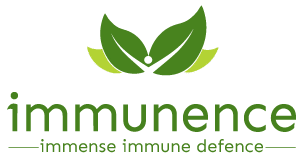The nutritional Science BEHIND IMMUNENCE
The articles presented in this page are from leading international medical journal resources, which is where Immunence got our nutritional science facts from to create our unique blend of superfood ingredients.
Our top priority when creating Immunence was to ensure that every ingredient used played a part in boosting the immune system and helps you to be feeling your best self.
This means they can be a little heavy to read, but it was important to demonstrate that the ingredients selected for IMMUNENCE come from real science and are not just antidotes or opinions (even if those opinions are from ‘experts’).
We have tried to select META-ANALYSIS studies wherever available. The National Institute of Health describes them as:
“A quantitative, formal, epidemiological study design used to systematically assess the results of previous research to derive conclusions about that body of research. Typically, but not necessarily, the study is based on randomized, controlled clinical trials.”
Are vitamins safe?
The consumption of a daily multivitamin among people all over the world is dramatically increasing in recent years. Most of the people believe that if vitamins are not effective, at least they are safe. However, the long term health consequences of vitamins...
Most multivitamins and supplements are a ‘waste of money’
"Not only are vitamin and mineral supplements a waste of money, they can in some instances actually harm the body," reports The Guardian. A new Canadian review pooled the findings from existing research into the role of vitamin and mineral supplements for the...
A Review of Micronutrients and the Immune System
Immune support by micronutrients is historically based on vitamin C deficiency and supplementation in scurvy in early times. It has since been established that the complex, integrated immune system needs multiple specific micronutrients, including vitamins A, D, C, E,...
An anti-inflammatory diet as a potential intervention for depressive disorders
There is a large body of evidence which supports the role of inflammation in the pathophysiology of mental health disorders, including depression. Dietary patterns have been shown to modulate the inflammatory state, thus highlighting their potential as a therapeutic...
Flavonoids, Inflammation and Immune System
Flavonoids, including around 6000 phenolic compounds, are products of the secondary metabolism of plants which can be a part of one’s diet via the consumption of many edible plants. Flavonoids can be classified into flavonols (such as quercetin, kaempferol,...
Do Foodborne Antioxidants Fight Viruses?
Flu shots only reduce the risk of infection by about half … which is still much better than nothing. But there is no vaccine against the common cold, and no proven preventive measure for colds or the flu. So it makes sense to adopt any diet or lifestyle measure that...
Can Antioxidants Improve Immune Health?
‘Antioxidant’ is a buzzword that often makes an appearance in health and wellness rhetoric. And it’s not surprising – these potent compounds are poised to defend your body from those reprehensible, DNA-attacking villains: free radicals. It’s an epic tale of good...
Fight Breast Cancer with Flax and Chia seeds
Lignans in Flax and Chia Seeds Lower the Risk of Breast Cancer The old adage “An ounce of prevention is worth a pound of cure” best describes what our focus should be regarding breast cancer, which is the most common form of cancer that affects women, and is the...
Definition of a plant-based diet
Definition of a plant-based diet A plant-based diet consists of all minimally processed fruits, vegetables, whole grains, legumes, nuts and seeds, herbs, and spices and excludes all animal products, including red meat, poultry, fish, eggs, and dairy products. Overview...
 LANGUAGE
LANGUAGE SPANISH
SPANISH